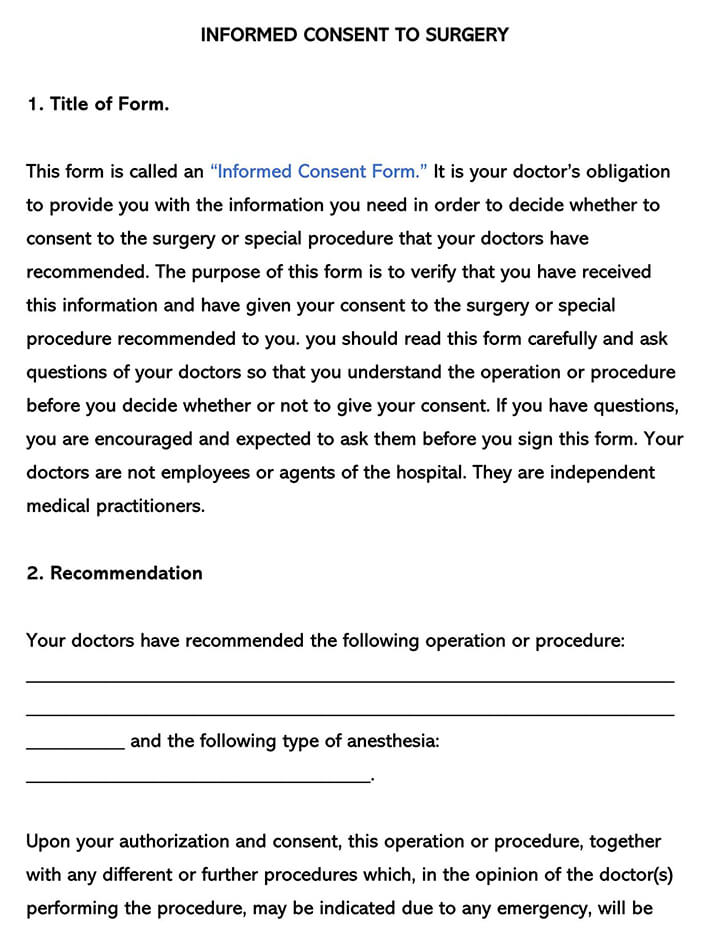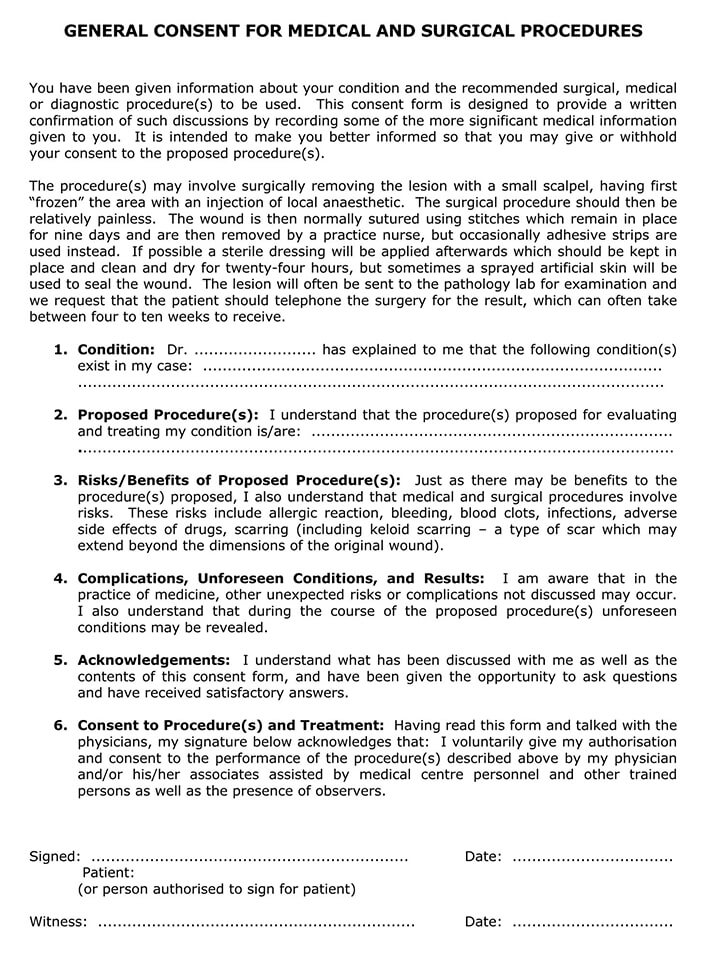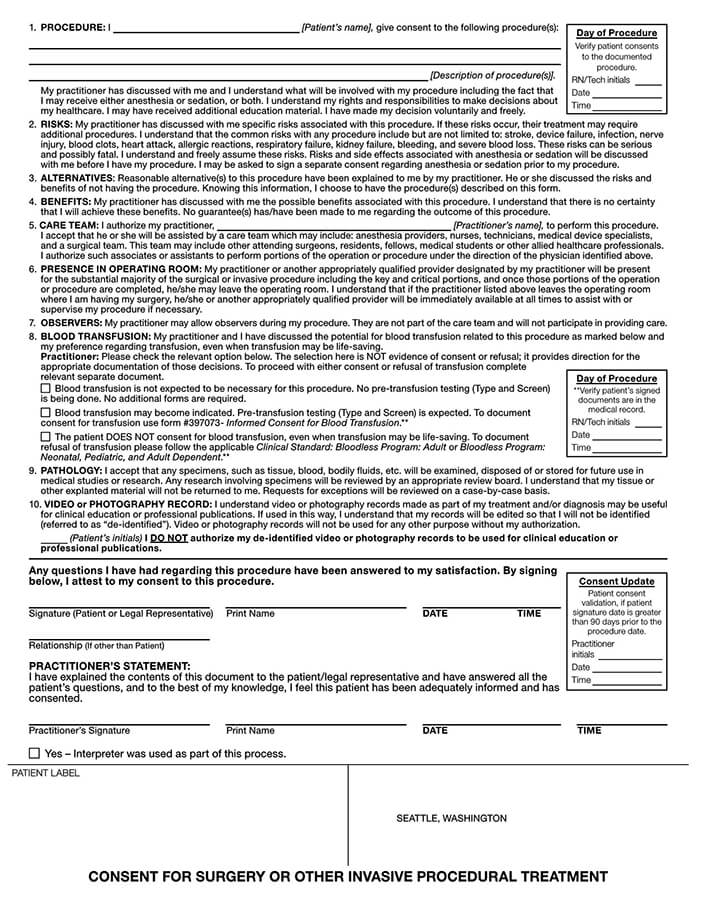Any time surgery is going to be performed, both general consent and informed consent is required by the patient. In most cases, a surgical consent form will be filled out and gone over.
What is Surgical Consent?
Giving your physician permission to perform a surgical procedure is surgical consent. This can be done orally or in writing. It is a criminal offense to do surgery on a patient without permission. Before giving consent, the physician must thoroughly explain what the procedure entails, why they should have it, what risks and side effects they may experience, and all aftercare treatment. This is considered informed consent, and you would use a Surgical Consent Form that the patient signs once everything has been gone over.
What is a Surgical Consent Form?
The purpose of a surgical consent form is to ensure that a patient has been given all of the necessary details related to individual or surgical procedures so that they can make an informed decision regarding having the system.
The form needs to outline any type of risk that is associated with the procedure, regardless of how minor or non-life threatening the procedure may be. A physician should not guarantee, either explicitly or implicitly, that there is no danger to the patient, or that the system will cure the underlying issue.
There should also be a separate section on the surgical consent form regarding anesthesia, which can come with its risks not related to the actual surgery. The same goes for potential blood transfusions that may be needed during the operation.
Both the names of the physician doing the surgery and the name of the anesthesiologist should be clear on the form. If a certified registered nurse anesthetist is overseeing the anesthesia process, rather than an anesthesiologist, it should be explained in the way of the limited training of a CRNA in comparison to an anesthesiologist.
Free Consent Forms



Legal Issues Around Surgical Consent
There are some cases where a patient can revoke consent for surgery, even after the operation has been done. This would be in cases where a patient:
- Had a mental illness
- Had a mental disability
- Was under duress (stress or pain)
- Was in labor
- Was semi-conscious
- Was under the influence of alcohol, drugs, or other substances
- Was a minor
Under these situations, a patient is considered not to have been mentally capable of making the right choice for themselves and the consent itself was not completely voluntary.
Surgery Without Consent
Surgery without consent can also occur during routine operations, where the patient did consent. An example would be, going in for routine surgery, and the physician discovers another issue. They then perform another surgery while they are doing the original surgery. The physician may have felt at the time that the second surgery was necessary. However, the patient did not consent to the second surgery. A surgeon should only perform additional surgery if the situation is life-threatening.
Another example of surgery without consent would be a situation where a patient tells the surgeon they cannot have a blood transfusion during surgery because it goes against their religious beliefs. However, complications arise, and the surgeon gives a blood transfusion to save the patient’s life. In both situations, the surgeon is held liable for performing surgery without consent.
Frequently Asked Questions
Nurses will often act as a witness for a patient giving consent to a physician. However, they are not legally responsible for obtaining permission. They are just there to verify that a patient voluntarily gave consent.
The general rule is that anyone under the age of 18 must have a parent or legal guardian give consent for surgery or medical treatment.
This depends on the facility where the patient is being treated. Some will say that consent forms are valid for the duration of the hospital stay of the patient or 30 days. Some facilities will state that consent is valid until the patient revokes it or their condition changes.










